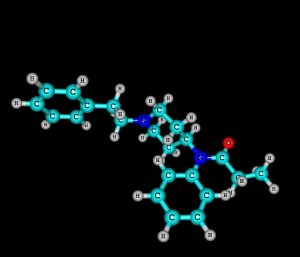
Why Patients Searching for Ohio Detox Are Turning to the Waismann Method in California
Why Patients Searching for Ohio Detox Are Turning to the Waismann Method in California If you’ve been looking for “Ohio detox,” “rapid detox in Ohio,”

Morphine is a potent opioid drug derived from the opium poppy plant. It is a prescription pain reliever and considered one of the most potent opioid drugs in existence. Therefore, the DEA (Drug Enforcement Administration) classifies morphine as a Schedule II controlled substance. This is because a schedule II classification indicates the potential for high rates of abuse, diversion, and addiction.
A pharmacist first isolated morphine in Germany in 1804 and named it “morphium” after Morpheus, the Greek god of dreams. It is manufactured and sold in liquid, tablet, capsule, suppository, or injectable forms under brand names:
Morphine is a highly potent opiate (narcotic) analgesic because it treats moderate to moderately severe chronic pain. Extended-release Morphine tablets are only used by patients who require around the clock pain relief, while the short-acting formulation is taken as needed.
Speak Confidentially
with an opiate detox treatment expert.
Morphine is a fast-acting opiate analgesic and the primary agent in opium. Because it acts directly on the central nervous system to relieve severe pain, it’s similar to other opiates, including heroin. It is also used to treat pain from surgery, illness, trauma, and chronic pain conditions associated with cancer, kidney stones, and other ailments. Furthermore, reports by the National Institute of Drug Addiction (NIDA) show that morphine acts by attaching to the opioid receptors located in the brain, spinal cord, and gastrointestinal tract.
Everyone produces naturally endogenous opioids called endorphins. These endorphins bind to particular receptors located in the brain, spinal cord, and gastrointestinal tract. Finally, this interaction leads to several effects in the body, including:
Understandably, euphoria and feelings of relaxation keep many people using morphine. However, the repeated use of morphine can cause a person to develop a physical tolerance. Then, tolerance leads to increased use of the drug. Consequently, addiction occurs.
If you feel any of these symptoms, please call for immediate medical assistance.
When attempting a morphine detox, consider detoxing under the supervision of an experienced physician. Withdrawal from opiates can be quite challenging and sometimes diminish one’s resolve to become drug-free.
To illustrate, symptoms of morphine withdrawal may include:
There are a variety of drug treatment approaches that focus on the addiction itself. The issue with this form of drug treatment is that often the patients becomes or feels invisible. Consequently, depression returns and relapse is inevitable. ACTIQ addiction treatment should include a combination of medical detoxification and behavioral therapy. The specific protocol for detoxification and treatment should vary depending on the patient’s individual physical and emotional needs.
Detoxification methods for prescription drug abuse tend to be similar to those for heroin or Methadone because of its effect in the same area of the brain. The best addiction treatment programs provide a wide range of medical resources and a combination of therapeutic services to meet an individual patient’s needs. Additionally, an individualized emotional assessment may be critical for the full recovery of patients who suffer from co-occurring mental disorders such as depression, anxiety, bipolar disorder, and other psychological conditions.
Speak With an Addiction Specialist
Exceptional Care & Better Outcome. Get In Touch With Us Today!
An inpatient medical treatment for morphine detox can minimize the painful withdrawal symptoms and increase detoxification chances. Additionally, because of high relapse rates during the detox phase in drug rehabs, anesthesia-assisted rapid detox is a great option.
Rapid detoxification gets patients through the worst of the withdrawal while under sedation. Consequently, the process maximizes comfort and decreases the risk that the user will abandon detox in the middle of the process. However, other options for morphine detox are also available. It is essential to consider what you or your loved one will medical, and recovery needs are before choosing a program.
Waismann Method® team understands how difficult the symptoms of morphine withdrawal can be. Often, withdrawal symptoms are so severe that those attempting morphine detox on their own end up relapsing within the first 24 hours. Therefore, the best option in overcoming this obstacle is a medically assisted detox. In a hospital, doctors can perform in-depth evaluations and tailor a morphine treatment plan that best fits each patient’s unique health needs. Additionally, the Waismann Method® team provides patients with around-the-clock assistance and supervision, making treatment safer and more effective. Our medical and health care support team’s goal is to ensure all patients the best experience and results to begin the next phase in their recovery journey.
What's New at Waismann Method®

Why Patients Searching for Ohio Detox Are Turning to the Waismann Method in California If you’ve been looking for “Ohio detox,” “rapid detox in Ohio,”

If you’re searching for “Kentucky detox,” “rapid detox in Kentucky,” “medical detox in Kentucky,” or “opiate addiction treatment in Kentucky,” you’re likely looking for a

If you’re researching “Indiana detox,” “rapid detox in Indiana,” “medical detox in Indiana,” “Indiana detox center,” or “opiate addiction treatment in Indiana,” you’re likely seeking

We are available 7 days a week
Get Newsletter Updates from Waismann Method®
"*" indicates required fields
DISCLAIMER: The text presented on this page is not a substitute for professional medical advice. It is for your information only and may not represent your true individual medical situation. Do not hesitate to consult your healthcare provider if you have any questions or concerns. Do not use this information to diagnose or treat a health problem or disease without consulting a qualified healthcare professional. Be advised that Opiates.com articles are derived from various sources and may not reflect your own country’s regulations.